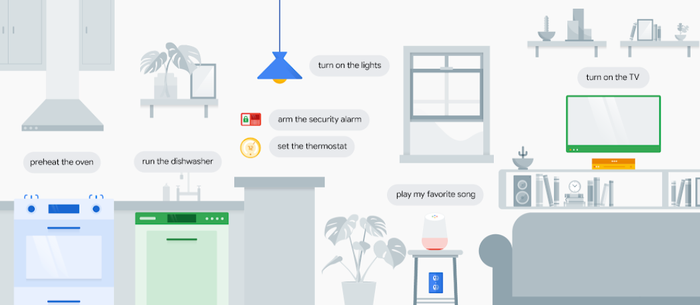Google plugs ecosystem in battle for the living room
Google has announced the launch of a new investment program for early-stage start-ups to build the digital assistant ecosystem, following steps taken by Amazon with its Alexa fund.
May 3, 2018

Google has announced the launch of a new investment program for early-stage start-ups to build the digital assistant ecosystem, following steps taken by Amazon with its Alexa fund.
The fund will provide investment capital, as well as access to Google engineers for advice, early access to upcoming features, access to the Google Cloud Platform and promotional support through Google marketing channels. Such prizes will have start-ups clambering over each other to gain the attention of executives.
“To promote more of this creativity, we’re opening a new investment program for early-stage start-ups that share our passion for the digital assistant ecosystem, helping to push new ideas forward and advance the possibilities of what digital assistants can do,” Google said in a statement.
In terms of the battle for the living room, this could be a very decisive more by the search engine giant.
As it stands, Google is losing the smart speaker race. Amazon has got greater market penetration with its hardware, as well as a better reputation in the segment. However, these are only the initial skirmishes; the war will be won by the company which can build the richest, most innovative and varied ecosystem.

Ultimately, the speaker is just a bit of hardware which can be manufactured by any electronics company, though this does extend to other smart devices as well. There will of course be better quality models, more stylish designs and a huge variety of brands, but the power of the smart speaker will be the effectiveness of the assistant and the ecosystem which has been built behind the scenes.
Before too long every electronics manufacturer will start building smart speakers which either (1) have a smart assistant set as default, or (2) give the user the option to install their own assistant. Evidence of this trend is already starting to emerge as Michele Turner, Director of Google’s Smart Home Ecosystem points out there are already 5,000 devices on the market which can connect to the Google Assistant. This number has tripled over the last three months.
The expensive marketing campaigns launched by Google and Amazon over the last couple of months are nothing but a normalization strategy for smart devices, we suspect there are no long-term ambitions for the pair in hardware. Money will be made through software and facilitating relationships between the user and third-parties. This is where Google and Amazon need to start focusing for a simple reason; without the ecosystem who would actually use a smart speaker or engage in the connected era?
Of course the speakers are entertaining and useful for the moment, but when you add in skills, new services and other smart devices, it starts to become an integral part of the user’s life. Services like Edwin, one of the first companies to receive Google funding, which offers a personal English tutor powered by AI, or Pulse Labs which helps voice application developers test their applications with real people. These are two different facets of the ecosystem, but important in different ways.
Just to emphasise the importance of the ecosystem, we can have a look at the development of social media. Facebook did an incredible job of mobilising and engaging technology companies, publishers and online gaming companies to adapt their propositions to the platform. It creating a deep ecosystem of content, product and services, and therefore a continuous role in the life of the consumers. MySpace did not create an ecosystem to support the community and suffered as a result.
Once an ecosystem has been created, more products and services are integrated into the platform. Once there are more uses for the user, they become increasingly engaged, which creates the monetization opportunity. Once money is being made through advertising or referrals, more investment can be pumped back into the ecosystem and the trend starts all over again. It’s the walled garden business model which has been proven successful in numerous other areas of the digital economy.
The initial bragging rights for the smart speaker segment will be the company which dominates hardware sales, but soon enough companies which specialise in manufacturing electronics devices will make the Amazon or Google hardware seem second-rate.
It all comes down to the software which powers the smart speaker, and the ecosystem which supports it.
About the Author(s)
You May Also Like











_1.jpg?width=300&auto=webp&quality=80&disable=upscale)


.png?width=800&auto=webp&quality=80&disable=upscale)